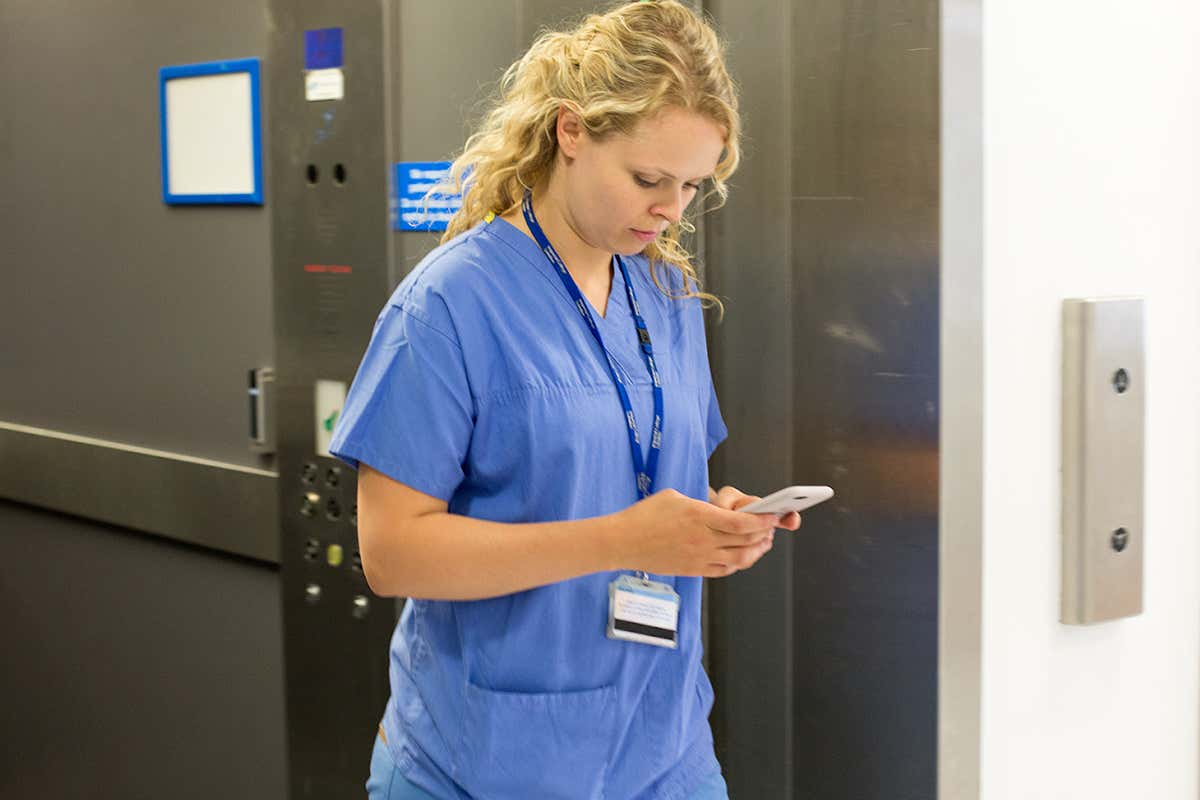Medical News
AI could be used to predict kidney injuryDeepMind
By Donna LuArtificial intelligence trained on health records can now detect kidney injury up to two days before it occurs. The idea is that an advance warning could help doctors intervene earlier to prevent irreversible damage to the kidneys.
AIs are already touted as rivals to doctors when it comes to detecting medical conditions such as certain cancers and childhood illnesses. But few undergo rigorous clinical trials, so it’s still too early to know whether they are effective in practice.
Nenad Tomašev at DeepMind and colleagues trained an algorithm to predict the likelihood that a person who was admitted to hospital would go on to develop acute kidney injury (AKI).
Advertisement
They trained the AI using de-identified electronic health records from 703,782 US veterans aged between 18 and 90, who were admitted to hospital between October 2011 and September 2015.
AKI results in a dramatic drop in the rate at which the kidneys filter blood. This causes a decrease in urine production and a build-up of waste products in the blood, such as creatinine, a by-product of muscle breakdown. Both of these are used as measures for diagnosis.
Based on creatinine levels from a patient’s medical records, at a given time point the AI predicted whether a kidney injury would occur within the next 48 hours. Its accuracy was confirmed by comparing the prediction to whether the patient was later diagnosed.
The algorithm was fairly accurate at predicting the most severe forms of AKI. It correctly predicted 90 per cent of the cases in which the patient’s kidney function deteriorated so severely that they eventually required long-term dialysis.
It is difficult for doctors to anticipate kidney injury, so that level of accuracy is significant given the consequences of a severe injury, which include death or the need for a kidney transplant, says Eric Topol at Scripps Research in the US, who was not involved in the research.
However, the algorithm was far less accurate for all forms of AKI, correctly predicting only 55.8 of all episodes, with a ratio of two false alerts for one correct prediction.
Clinical trials needed
The only way to be sure that the AI will be helpful is to test it in a clinical trial, to see whether using the algorithm would actually reduce the number of people who need long-term dialysis.
Given the health effects of gender bias in medical research, expanding the dataset to a more diverse population would be useful too – in this case, women comprised only 6.38 percent of people whose records the AI was trained on.
The difficulty of testing the effectiveness of AIs in medicine is that there could be serious consequences if they get things wrong – a false negative could mean a missed cancer diagnosis, while a false positive may lead to unnecessary treatment.
This is not the case for the AKI-predicting AI: a missed prediction will eventually be picked up by a blood test. False alerts are unlikely to have a negative impact, says Topol, because managing the condition usually involves checking an individual’s fluid levels and blood pressure. At worst it may mean temporarily withholding a drug that is toxic to the kidneys, which is unlikely to be catastrophic.
AIs that use deep learning are effectively black boxes, giving detailed results without explaining the underlying biology. Clinicians might be hesitant to take the advice of such an algorithm if it doesn’t provide clinical reasons for a prediction, says John Prowle at the Queen Mary University of London, who was not involved in the study.
And for these kinds of algorithms, it’s hard to be sure what their predictions are based on – it’s possible, for example, that an AI can use its knowledge of what lab tests have been ordered to work out what a doctor suspects a diagnosis may be.
While it will not replace the criteria for an AKI diagnosis, Prowle says the AI could be used as a tool to help doctors identify deteriorating patients earlier.
“If we knew a patient was going to have a kidney injury, there’s many things we can do,” says Topol. These include adjusting the person’s fluid levels, monitoring blood pressure more closely, and avoiding certain medications.
But the severity and outcome of AKI varies greatly depending on the underlying cause, says Prowle. These include dehydration, sepsis, heart failure, and drugs that are toxic to the kidneys.
And predictive AI will only help in cases where doctors are able to intervene at all to improve a person’s condition. “One of the problems in AKI is even when detect it overtly we’ve not necessarily known how to respond to it,” says Prowle.
And while AKI is a condition common among people who are already admitted to hospital, people present to hospital with the condition more frequently – the AI is unable predict these cases.
Journal reference: Nature, DOI: 10.1038/s41586-019-1390-1
More on these topics:
artificial intelligence

